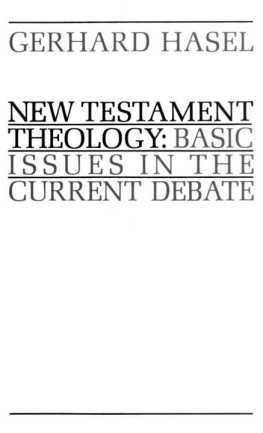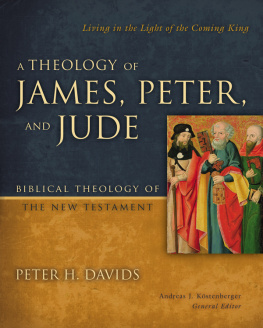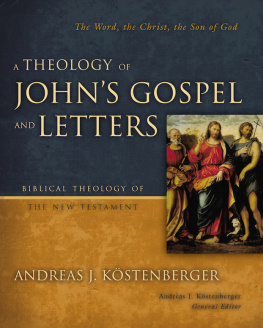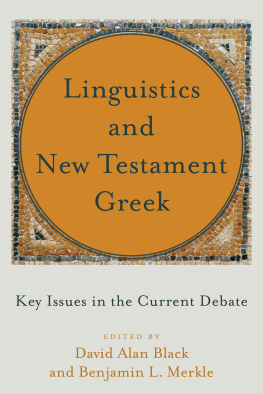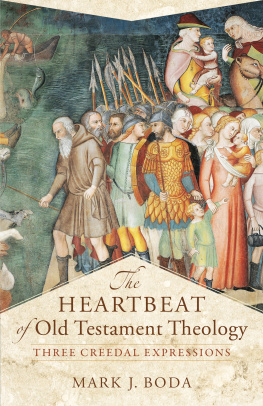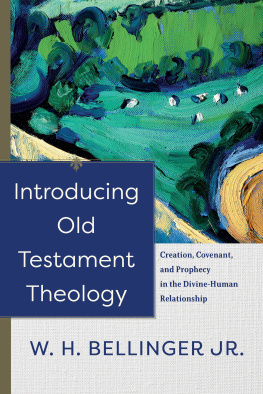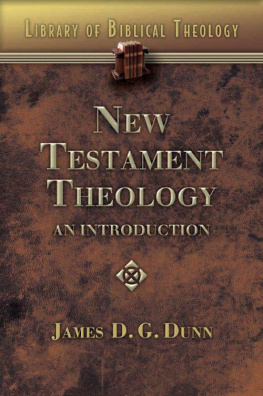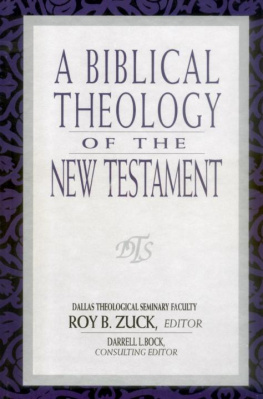Gerhard Hasel - New Testament Theology: Basic Issues in the Current Debate
Here you can read online Gerhard Hasel - New Testament Theology: Basic Issues in the Current Debate full text of the book (entire story) in english for free. Download pdf and epub, get meaning, cover and reviews about this ebook. year: 2009, genre: Religion. Description of the work, (preface) as well as reviews are available. Best literature library LitArk.com created for fans of good reading and offers a wide selection of genres:
Romance novel
Science fiction
Adventure
Detective
Science
History
Home and family
Prose
Art
Politics
Computer
Non-fiction
Religion
Business
Children
Humor
Choose a favorite category and find really read worthwhile books. Enjoy immersion in the world of imagination, feel the emotions of the characters or learn something new for yourself, make an fascinating discovery.
- Book:New Testament Theology: Basic Issues in the Current Debate
- Author:
- Genre:
- Year:2009
- Rating:3 / 5
- Favourites:Add to favourites
- Your mark:
- 60
- 1
- 2
- 3
- 4
- 5
New Testament Theology: Basic Issues in the Current Debate: summary, description and annotation
We offer to read an annotation, description, summary or preface (depends on what the author of the book "New Testament Theology: Basic Issues in the Current Debate" wrote himself). If you haven't found the necessary information about the book — write in the comments, we will try to find it.
Gerhard Hasel: author's other books
Who wrote New Testament Theology: Basic Issues in the Current Debate? Find out the surname, the name of the author of the book and a list of all author's works by series.
New Testament Theology: Basic Issues in the Current Debate — read online for free the complete book (whole text) full work
Below is the text of the book, divided by pages. System saving the place of the last page read, allows you to conveniently read the book "New Testament Theology: Basic Issues in the Current Debate" online for free, without having to search again every time where you left off. Put a bookmark, and you can go to the page where you finished reading at any time.
Font size:
Interval:
Bookmark:

THEOLOGY
TESTAMENT
THEOLOGY
in the Current Debate
The selection of issues in the current debate in terms of the question of methodology (Chapter II), the various problems associated with the center of the NT (Chapter III), and a variety of aspects related to NT theology and the OT, i.e., the relationship between the Testaments (Chapter IV), do not aim to be exhaustive or complete. They seek to touch on those factors and issues that seem to exercise contemporary scholars of various schools of thought and are major unresolved problems. On the basis of our discussion we attempt to provide some preliminary suggestions for doing NT theology (Chapter V). A fairly comprehensive bibliography seeks to serve as a resource tool for further study and personal research. It is hoped that the reader will be stimulated to engage in informed and creative thinking as he acquaints himself with basic issues in the current debate on NT theology.
Beginnings and. Development of NT Theology
This means that Biblical theology is emancipated from a role merely subsidiary to dogmatics. Inherent in this new development is the possibility that Biblical theology can become the rival of dogmatics and turn into a completely separate and independent discipline. These possibilities were realized under the influence of rationalism in the age of Enlightenment.
Accordingly he treats separately and in sequence (1) the theory of religion of the synoptics, (2) the theory of religion of the gospel of John and the letters of John, (3) the concept of religion of the Apocalypse and (4) of Peter, (5) the epistles of 2 Peter and Jude, and (6) the doctrine of Paul. His historicalcritical reconstruction of the manifoldness of the Biblical witnesses raised, among other problems, the matter of the relationship between the Testaments, a problem under vigorous debate today. Furthermore, the whole issue of Biblical theology's nature as a purely historical discipline as vigorously maintained by Gabler and consequently by Bauer and others is again questioned in the recent debate, as is the question of the nature of the descriptive task. Nevertheless, Gabler and Bauer are the founders of the independent discipline of Biblical and NT theology. published his famous Tractatus Theologico-Politicus (1670) in which he dealt with the question of the relation of theology to philosophy. He argued that both needed to be carefully separated and suggested that reason is men's guide to truth.
All of these influences were powerful catalysts toward the formation of the full-fledged historical-critical method. In 1728 the Geneva theologian of "rational ortho He stated: Semler's distinction between theology and religion, a distinction which separated the "locally" and "temporally" determined theologoumena from the lasting religion, was realized by F. C. Baur in the nineteenth century and reached its classic formulation by E. Troeltsch in the beginning of the twentieth century.
From the Enlightenment to Dialectical Theology
The wellknown major defects of Bauer's approach are the application of the Hegelian dialectic and an overemphasis on the influence of Judaism in early Christianity. but argues soberly against the excesses of deism's critique of religion with a view to ward off foreign influences on Biblical theology. He suggests that the unity of the Bible is recognized on the basis of the common theme of the kingdom of God which unites both Testaments. This center of the Bible has supporters today that belong to a non-conservative line of scholarship. These scholars agree that there is unity in diversity, that NT theology is concerned only with the canonical writings, that the proper method is the "historical-critical" one, and that it is proper to present the teaching of the NT under more or less traditional headings from dogmatics. The so-called "modern positive" direction of NT theology has been pioneered by an opponent of the and neither from dogmatic nor philosophical systems nor from so-called parallel texts from Scripture.
Font size:
Interval:
Bookmark:
Similar books «New Testament Theology: Basic Issues in the Current Debate»
Look at similar books to New Testament Theology: Basic Issues in the Current Debate. We have selected literature similar in name and meaning in the hope of providing readers with more options to find new, interesting, not yet read works.
Discussion, reviews of the book New Testament Theology: Basic Issues in the Current Debate and just readers' own opinions. Leave your comments, write what you think about the work, its meaning or the main characters. Specify what exactly you liked and what you didn't like, and why you think so.

